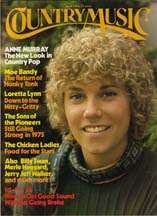Posts
Showing posts with the label buck owens
Thoughts On Country's "Greatest" Albums
- Get link
- X
- Other Apps
Reviewing The Top Ten Country Hits From this Week In 1975
- Get link
- X
- Other Apps
Ken Burns "Country Music" ~ Episode Five
- Get link
- X
- Other Apps
September Is Country Music Month ~ Oops, Let's Go Back
- Get link
- X
- Other Apps
People Who Don't Like Country Music...
- Get link
- X
- Other Apps


